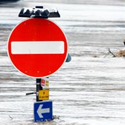
Dutch Turn to Big Data for Water Management & Flood Control
The Netherlands currently maintains one of the most advanced and closely monitored water systems in the world. It has to, considering that more than half of the Dutch people live in areas prone to flooding, and a history of horrific flooding. Now the low country hopes to improve the efficiency and the efficacy of its water and flood control systems by utilizing big data solutions developed in conjunction with water boards, universities, private industry, and IBM.
 While the Dutch already collect a lot of data regarding its flood control, drinking water, and waste water systems, there is room for improvement. According to IBM, the Dutch water authorities sometimes struggle with data issues common to many large organizations, including difficulty finding relevant data, questionable data quality, and many different data formats.
While the Dutch already collect a lot of data regarding its flood control, drinking water, and waste water systems, there is room for improvement. According to IBM, the Dutch water authorities sometimes struggle with data issues common to many large organizations, including difficulty finding relevant data, questionable data quality, and many different data formats.
The Dutch hope to address these data issues with Digital Delta, a new program that will address several aspects of water management in country. Digital Delta will provide storage and analysis for a variety of types of water-related data, including: precipitation measurements; water level and water quality monitors; levee sensors; radar data; weather forecasts; and current and historic maintenance data from sluices, pumping stations, locks, and dams.
With this data cleansed and standardized in Digital Delta, several different stakeholders will be able to use it to improve on some aspect of water management or flood control.
For example, the national water ministry (Rijkswaterstaat) and local water authorities will use Digital Delta to manage water flows, with the goals of optimizing the discharge of water, improving the containment of water during dry periods, and preventing damage to agriculture during rainy periods.
The Digital Delta data will also be used to create an early flood warning system to protect against flooding in areas near the ocean and numerous river deltas. IBM says it will work with the company HydroLogic Research and the Delfland Water Board to create the system, which will involve integrating a large amount of real-time measurement data with weather information, and running it against water system simulation models.
The country’s use of the Deltares Institute’s open-source Next Generation Hydro Software will also be improved by the Digital Delta initiative. Next Generation Hydro facilitates the numerical modeling of rivers, seas, and deltas, but requires access to large volumes of data found in multiple formats. Digital Delta will help by standardizing the data and making it readily available.
Maintenance schedules will also be optimized as part of the Digital Delta project. IBM says it will provide Delft University of Technology with its Intelligent Water Software, which will enable it to generate better maintenance schedules that take into account various items, including weather predictions, real-time sensor data, topography, and asset service history.
“Aggregating, integrating, and analyzing data on weather conditions, tides, levee integrity, run off and more, will provide the Dutch government with detailed information that better prepares it to protect Dutch citizens and business, as well as homes, livestock, and infrastructure,” Jan Hendrik Dronkers, director general of Rijkswaterstaat, says in an IBM press release.
Related Items:
Six Super-Scale Hadoop Deployments
Erecting Operational Intelligence Using Machine Data
UPS Delivers on Prescriptive Analytics






























